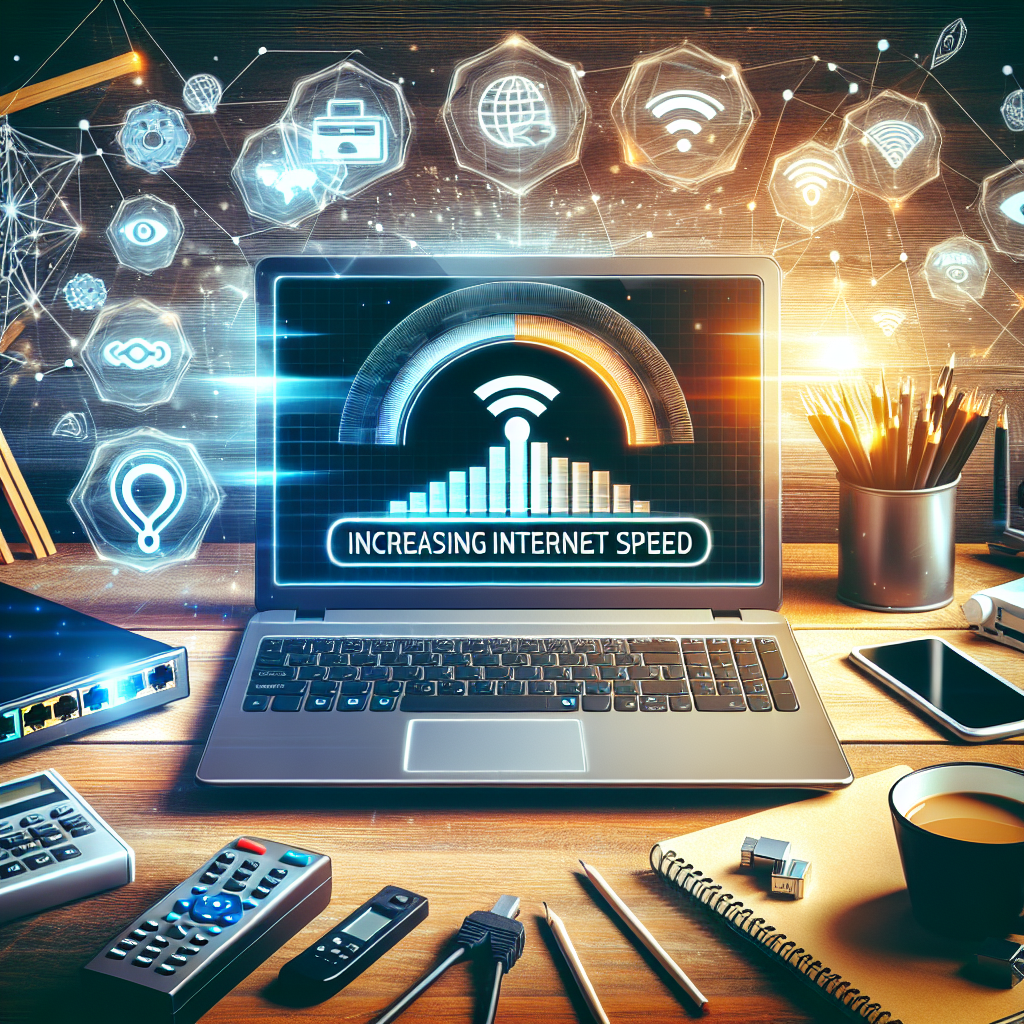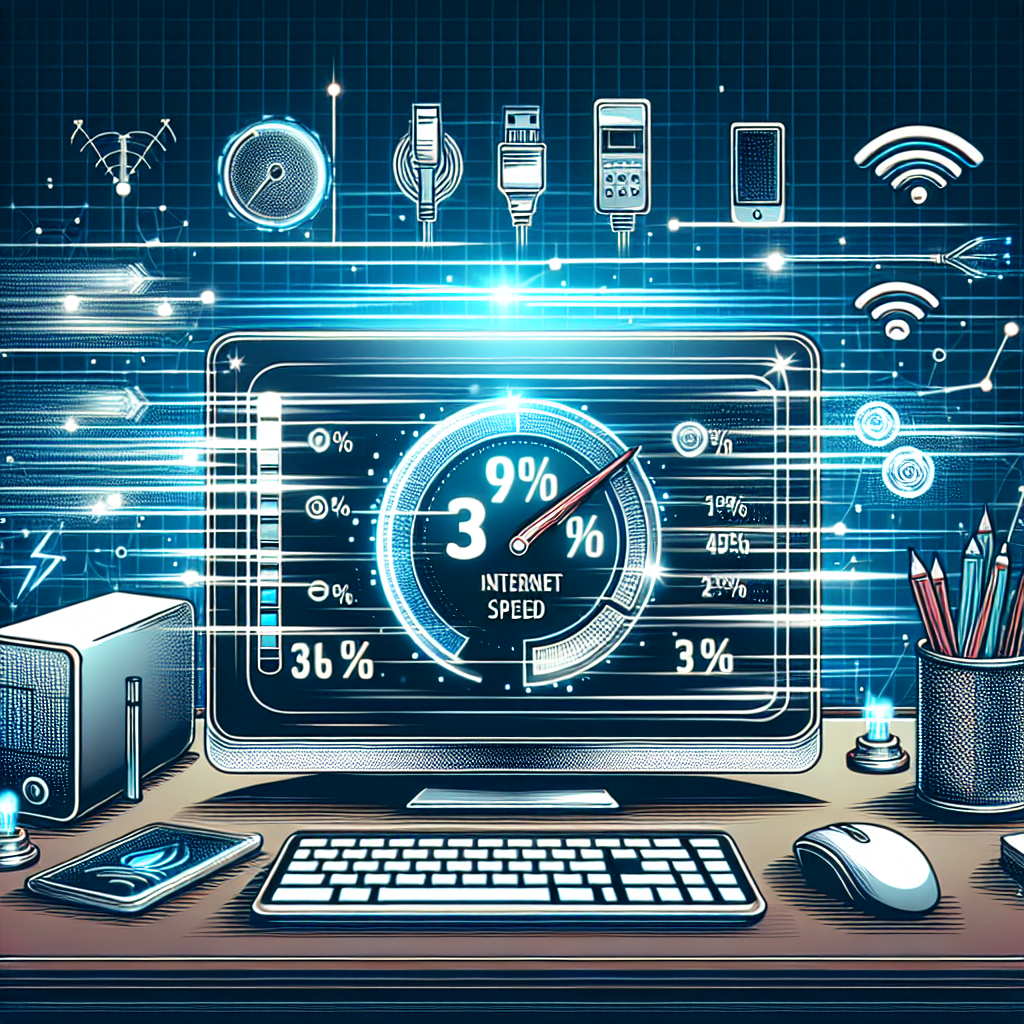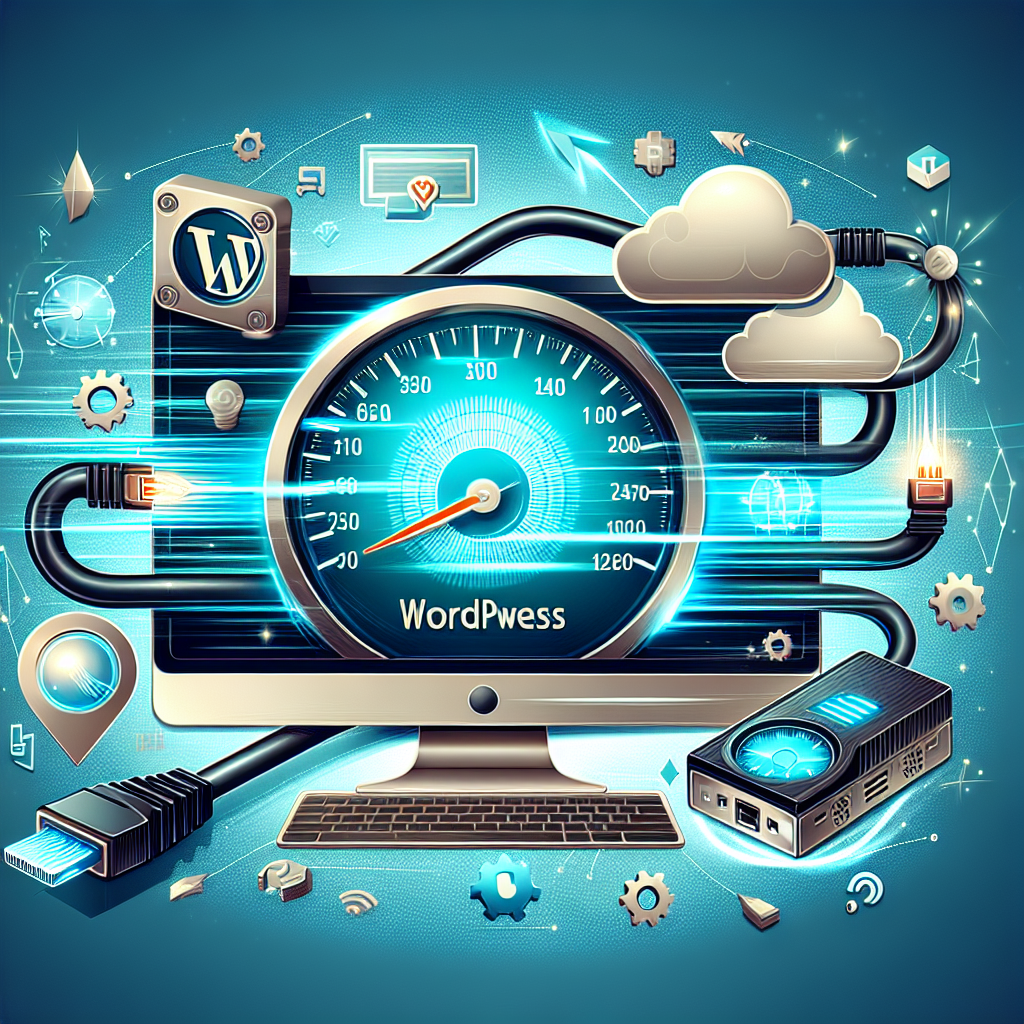In today’s digital age, having a fast and reliable internet connection is essential for productivity, entertainment, and staying connected with others. Slow internet speeds can be frustrating and hinder your online experience. Luckily, there are several easy and effective ways to increase your internet speed and optimize your connection. From simple troubleshooting techniques to upgrading your equipment and adjusting your settings, this guide will provide you with the tools and tips you need to boost your internet speed and enjoy a seamless online experience. Say goodbye to buffering and lagging – it’s time to supercharge your internet connection!
Understanding Internet Speed

Internet speed refers to the rate at which data is transferred between your device and the internet. It is typically measured in megabits per second (Mbps) or gigabits per second (Gbps) and plays a crucial role in determining the efficiency of your online activities.
Definition of Internet Speed
- Download Speed: This indicates how quickly data can be transferred from the internet to your device. It affects activities like streaming videos, downloading files, and browsing websites.
- Upload Speed: This measures how fast data can be sent from your device to the internet. It impacts activities such as uploading files, video conferencing, and online gaming.
Factors Affecting Internet Speed
Several factors can influence your internet speed, including:
- Internet Plan: The type of internet plan you have subscribed to can significantly impact your speed. Higher-tier plans typically offer faster speeds.
- Connection Type: The type of connection you have, such as fiber-optic, DSL, cable, or satellite, can affect your internet speed capabilities.
- Network Congestion: During peak usage times, network congestion can slow down your internet speed as more users are competing for bandwidth.
- Hardware: The quality of your modem, router, and Ethernet cables can also affect your internet speed. Outdated or faulty hardware may limit your connection speed.
- Distance from the Router: The farther you are from your router, the weaker your Wi-Fi signal may be, resulting in slower internet speeds.
Common Misconceptions about Internet Speed
- Myth: More Mbps always equals faster internet. In reality, the actual speed you experience can be influenced by multiple factors beyond just the Mbps rating.
- Myth: Closing unused tabs or applications will significantly boost internet speed. While it may free up some bandwidth, the impact on overall speed is usually minimal.
- Myth: Internet speed is solely determined by your Internet Service Provider (ISP). While your ISP plays a role, factors like network setup, hardware, and internet traffic also contribute to your speed.

Optimizing Your Internet Connection
Check Your Internet Plan
Optimizing Your Internet Connection
When aiming to increase internet speed, the initial step is to evaluate your current internet plan thoroughly. This assessment is crucial in determining whether your existing plan is sufficient for your speed requirements or if an upgrade is necessary. Below are key points to consider when checking your internet plan:
- Assessing your current plan
- Review your current plan details, including download and upload speeds, data limits, and monthly costs.
- Compare the actual speeds you are experiencing with the speeds promised by your provider.
-
Check for any throttling or speed limitations during specific times of the day.
-
Upgrading options available
- Contact your internet service provider (ISP) to inquire about available upgrade options.
- Explore higher-tiered plans that offer faster speeds and potentially better performance.
- Consider any promotional deals or discounts for upgrading your plan.
By thoroughly examining your current internet plan and exploring potential upgrade options, you can make an informed decision on how to optimize your internet connection for increased speed and improved performance.
Enhance Your Wi-Fi Connection
When aiming to boost your Wi-Fi connection, several key factors should be considered to optimize the speed and stability of your internet connection:
-
Placement of the router: Position your router in a central location within your home or workspace to ensure even coverage throughout. Avoid placing it near walls, floors, or other obstructions that may hinder the transmission of the Wi-Fi signal.
-
Wi-Fi signal boosters and extenders: Consider investing in signal boosters or extenders to amplify the reach of your Wi-Fi network, especially in larger spaces or areas with connectivity issues. These devices can help strengthen the signal and eliminate dead zones within your premises.
-
Securing your Wi-Fi network: Protect your Wi-Fi network with a strong, unique password to prevent unauthorized access and potential bandwidth leeching. Enable encryption protocols such as WPA2 to safeguard your connection and ensure that only authorized devices can connect to your network. Regularly update your router’s firmware to address security vulnerabilities and maintain optimal performance.
Reduce Interference and Network Congestion
To enhance your internet speed, it is crucial to minimize interference and network congestion. Here are some effective strategies to achieve this:
-
Minimize interference from other electronic devices: Electronic devices such as microwave ovens, cordless phones, and Bluetooth devices can interfere with your Wi-Fi signal, leading to slower internet speeds. To reduce interference, try to keep these devices away from your router and computer. Additionally, consider using devices that operate on different frequencies to avoid conflicts.
-
Avoid peak hours for heavy internet usage: Internet speeds can significantly slow down during peak hours when many users are online simultaneously. To alleviate network congestion, try to schedule your online activities during off-peak hours, such as early morning or late at night. By avoiding peak times, you can experience faster and more stable internet speeds for your browsing, streaming, and downloading needs.
Technical Adjustments for Speed Improvement
DNS Configuration
Many users overlook the impact of DNS configuration on their internet speed. However, understanding the Domain Name System (DNS) and making adjustments can significantly enhance your browsing experience.
Understanding DNS
– DNS is like the internet’s phone book, translating domain names into IP addresses to locate resources.
– When you type a web address, your device queries a DNS server to find the corresponding IP address.
Changing DNS settings for faster browsing
– By default, your ISP assigns DNS servers, but switching to faster public DNS servers like Google DNS or OpenDNS can boost speed.
– To change DNS settings on Windows, go to Network Connections, right-click on your network, select Properties, choose Internet Protocol Version 4 (TCP/IPv4) properties, and enter preferred DNS server addresses.
– On Mac, navigate to System Preferences, Network, Advanced, and switch to the DNS tab to add and prioritize DNS servers.
Clearing Cache and Cookies
Technical Adjustments for Speed Improvement
Clearing cache and cookies is a common method to increase internet speed and improve browsing performance. These temporary files stored on your browser can accumulate over time, causing it to slow down. By clearing cache and cookies regularly, you can free up space and remove any outdated or corrupted files that may be hindering your internet speed.
Benefits of clearing cache:
- Improved Loading Times: Clearing cache helps in loading websites faster as the browser doesn’t have to retrieve old data.
- Enhanced Privacy: Removing cookies can protect your personal information from being tracked by websites.
- Fixing Website Errors: Outdated cache files can sometimes cause errors on websites, which can be resolved by clearing cache.
Steps to clear cache on different browsers:
- Google Chrome:
- Go to the “More” option (three vertical dots) in the top right corner.
- Select “More tools” and then “Clear browsing data.”
- Choose the time range and the types of data you want to clear, including cache and cookies.
-
Click on “Clear data” to confirm.
-
Mozilla Firefox:
- Click on the menu button (three horizontal lines) and choose “Options.”
- Go to the “Privacy & Security” panel and scroll down to the “Cookies and Site Data” section.
-
Click on “Clear Data,” select the data types you want to clear, including cache and cookies, and then click “Clear.”
-
Safari:
- In the top menu, click on “Safari” and then select “Preferences.”
- Go to the “Privacy” tab and click on “Manage Website Data.”
- Select “Remove All” to clear all website data, including cache and cookies.
Regularly clearing cache and cookies can help optimize your browser’s performance and contribute to a smoother internet browsing experience.
Updating Hardware and Software
Keeping devices and software up-to-date is crucial for optimizing internet speed and performance. Here are some key points to consider when updating hardware and software:
-
Importance of up-to-date devices:
Regularly updating devices such as computers, smartphones, and tablets ensures that they are running the latest software versions, which can help improve internet speed. New updates often include bug fixes, security patches, and performance enhancements that can positively impact connection speeds. -
Updating firmware for routers and modems:

Routers and modems play a significant role in determining internet speed, and updating their firmware can lead to noticeable improvements. Firmware updates often address compatibility issues, security vulnerabilities, and performance optimizations that can help enhance the overall speed and stability of your internet connection. Regularly checking for firmware updates from your router or modem’s manufacturer and installing them can help ensure that you are maximizing your internet speed potential.
Monitoring and Troubleshooting
Use Speed Testing Tools
When trying to increase internet speed, it is crucial to utilize speed testing tools to accurately measure your current connection performance. These tools provide valuable insights into your internet speed, helping you identify any potential issues and monitor improvements over time.
Recommended speed testing websites
There are several reputable speed testing websites available online that can help you assess your internet speed. Some popular options include Ookla’s Speedtest, Fast.com by Netflix, and Google’s speed test. These tools are user-friendly and provide detailed information on your download and upload speeds, as well as ping latency.
Interpreting speed test results
Interpreting the results of a speed test is essential in understanding your internet connection’s performance. When reviewing the results, pay attention to metrics such as download speed, upload speed, and ping latency. A higher download and upload speed indicates faster data transfer rates, while a lower ping latency signifies a more responsive connection.
Regularly conducting speed tests and analyzing the results can help you troubleshoot any issues affecting your internet speed and make informed decisions on how to optimize your connection for better performance.
Troubleshooting Common Issues
- Identifying potential problems
When faced with slow internet speeds, it is crucial to first identify potential problems that could be causing the issue. Common culprits include:
-
Network Congestion: High traffic on your network can lead to slower speeds. This can occur during peak hours when many users are online simultaneously.
-
Hardware Limitations: Outdated or malfunctioning hardware such as routers or modems can significantly impact internet speed.
-
Interference: Other electronic devices operating on the same frequency as your Wi-Fi network can cause interference and reduce speeds.
-
Software Issues: Background applications consuming bandwidth or malware on your devices can also contribute to slow internet speeds.
-
Steps to resolve connectivity issues
Once potential problems have been identified, there are several steps you can take to resolve connectivity issues and increase internet speed:
-
Restart Devices: Begin by restarting your modem, router, and device to refresh the connection and potentially resolve any temporary issues.
-
Check Connections: Ensure all cables and connections are secure and undamaged to guarantee optimal performance.
-
Update Firmware: Regularly update the firmware of your router and modem to ensure they are running the latest software with bug fixes and performance enhancements.
-
Optimize Wi-Fi Settings: Adjust your Wi-Fi settings such as channel and frequency to minimize interference and maximize speed.
-
Limit Background Applications: Close unnecessary applications running in the background to free up bandwidth for essential tasks.
-
Run Antivirus Scans: Conduct regular antivirus scans on your devices to detect and remove any malware that could be affecting internet speed.
By following these troubleshooting steps, you can address common connectivity issues and potentially increase your internet speed.
Additional Tips for Speed Enhancement
When aiming to boost your internet speed, there are several additional tips and tricks that can make a significant difference in your online experience. Consider the following strategies:
- Using Ethernet connection for faster speeds:
-
Connecting your device directly to the modem or router via an Ethernet cable can provide a more stable and faster connection compared to using Wi-Fi. This is especially beneficial for activities that require high bandwidth, such as online gaming or streaming HD videos. By eliminating potential interference and signal loss associated with wireless connections, you can experience a noticeable improvement in speed and reliability.
-
Limiting the number of connected devices:
-
The more devices connected to your network, the more bandwidth is divided among them, potentially slowing down your internet speed. To optimize your connection, try limiting the number of devices actively using the network simultaneously. Consider disconnecting devices that are not in use or implementing quality of service (QoS) settings on your router to prioritize certain devices for smoother performance. By reducing congestion on your network, you can enhance the speed and responsiveness of your internet connection.
-
Regularly restarting your modem and router:
- Over time, electronic devices like modems and routers can accumulate temporary data and experience performance issues that may impact your internet speed. To address this, it is recommended to periodically restart your modem and router to refresh their systems and clear any potential congestion or glitches. By power cycling these devices, you can ensure they are operating at their optimal capacity, leading to improved internet speed and overall network performance.
FAQs for How to Increase Internet Speed
What factors can affect my internet speed?
Several factors can affect your internet speed, including the type of connection you have (e.g. DSL, cable, fiber optic), the number of devices connected to your network, the quality of your router and modem, and the bandwidth provided by your internet service provider.
How can I determine my current internet speed?
You can determine your current internet speed by using online speed test websites such as speedtest.net or fast.com. These websites will measure your download and upload speeds and give you an idea of the performance of your internet connection.
What can I do to increase my internet speed?
To increase your internet speed, you can try several steps such as moving your router to a central location in your home, updating your router’s firmware, using an Ethernet cable instead of Wi-Fi for better connectivity, clearing your browser’s cache and cookies regularly, and reducing the number of devices connected to your network.
Should I upgrade my internet plan to increase my internet speed?
Upgrading your internet plan to a higher speed tier may help increase your internet speed, especially if you have a lot of devices connected to your network or if you regularly stream videos or play online games. Contact your internet service provider to discuss your options for upgrading.